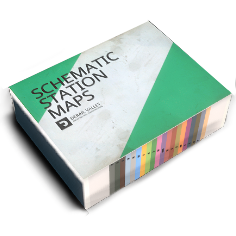Horns, Bells & Whistles: Difference between revisions
Appearance
importing old manual |
m Tweaks |
||
| (3 intermediate revisions by 3 users not shown) | |||
| Line 1: | Line 1: | ||
<languages /> | <languages /> | ||
<translate> | <translate> | ||
<!--T:1--> | <!--T:1--> | ||
Most {{pll|Rail Vehicle Types|motorized rail vehicles}} have powerful horns or whistles, making them audible at long distances. These devices are used as a form of communication, for example to warn about nearing level crossings, or to signal departure. As horns and whistles are very loud, unnecessary usage is prohibited. | |||
<!--T:2--> | <!--T:2--> | ||
Some motorized rail vehicles make themselves audible using bells when running at low speeds through populated areas, namely in rural areas, yards and passenger stations. | Some motorized rail vehicles make themselves audible using bells when running at low speeds through populated areas, namely in rural areas, {{pll|Railway Terminology|yards}} and passenger stations. | ||
<!--T:3--> | <!--T:3--> | ||
Horns, bells and whistles are commonly powered by air | Horns, bells and whistles are commonly powered by {{pll|Compressor|compressed air}}, but may also require {{pll|Electricity|electricity}}. | ||
</translate> | </translate> | ||
[[Category:Accessories|5]] | |||
[[Category:Accessories]] | |||
Latest revision as of 22:46, 17 March 2025
Most motorized rail vehicles have powerful horns or whistles, making them audible at long distances. These devices are used as a form of communication, for example to warn about nearing level crossings, or to signal departure. As horns and whistles are very loud, unnecessary usage is prohibited.
Some motorized rail vehicles make themselves audible using bells when running at low speeds through populated areas, namely in rural areas, yards and passenger stations.
Horns, bells and whistles are commonly powered by compressed air, but may also require electricity.
